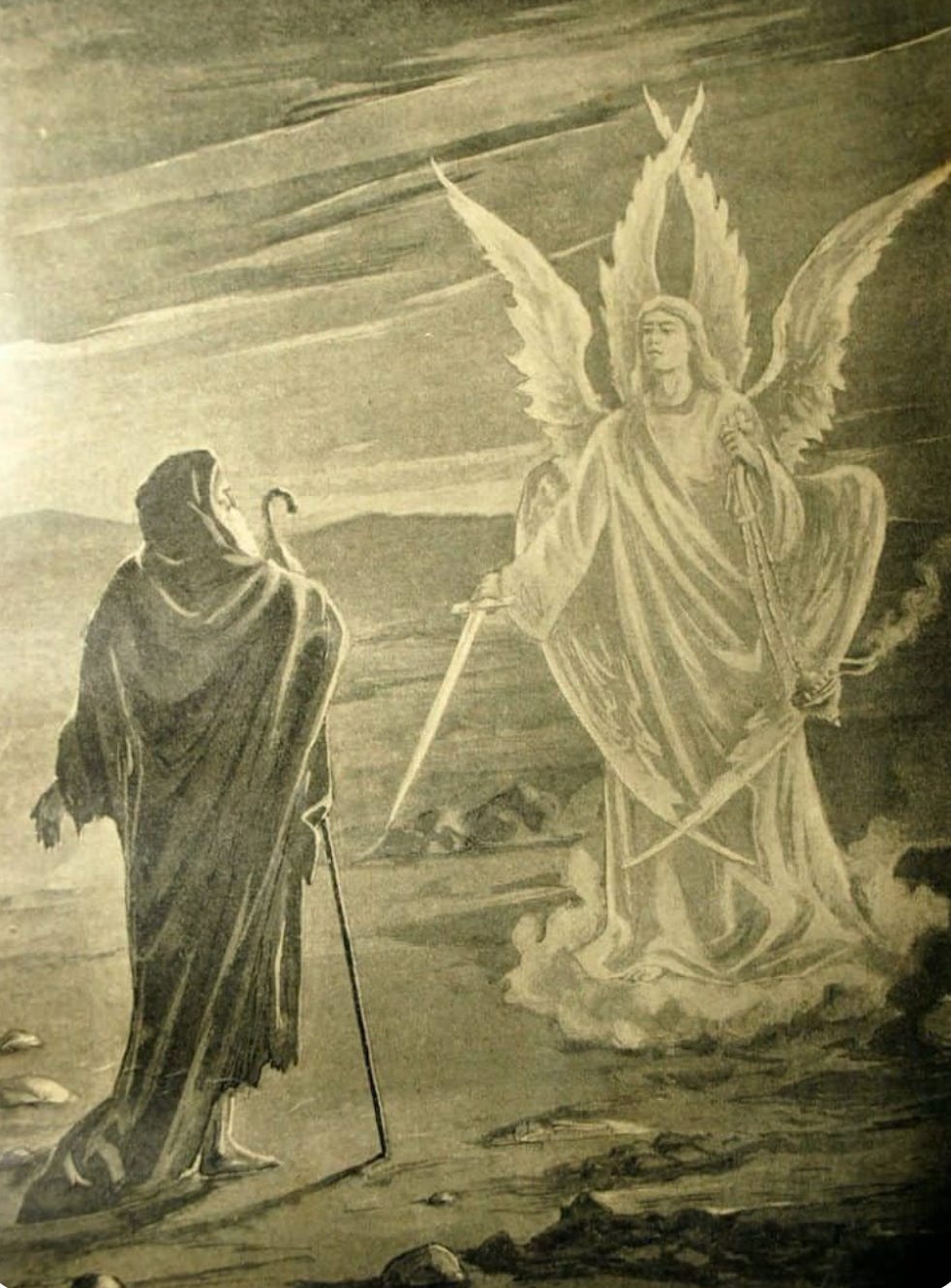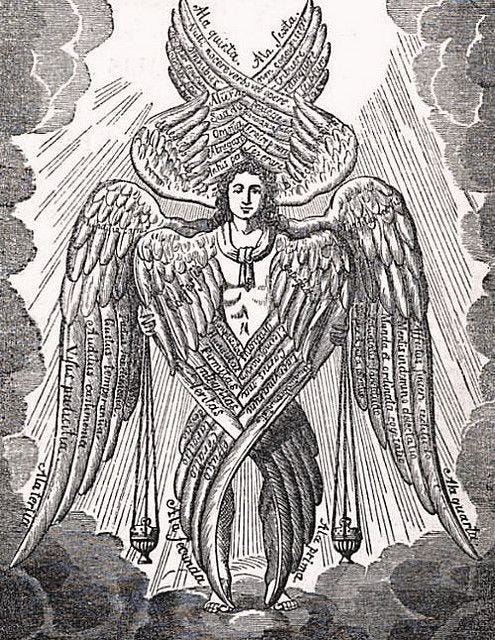Modernity views angelology as the ultimate example of theological excess and monkish mental masturbation. A humorous relic from a bygone age and a source of embarrassment for “serious” theologians. The phrase “How many angels can dance on the head of a pin” is now synonymous with wasting time over frivolous debate. The New Atheists of the early 2000s relished in alluding to angelology when attacking the legitimacy of Theology departments, as angels became the perfect tool for questioning the place of the field in academia. Unfortunately, todays average Catholic holds a view of angels indistinguishable from that of Richard Dawkins.
Ask a Catholic about their thoughts on angels and you may either get a blank look or a couple giggles. Angels enter the Catholic mind’s eye once a year when the Christmas tree goes up, and their conception of what an angel is probably hinges on those very ornaments. They may conjure up an image of cupid or some other plump neotic faery, or worse yet, they may even believe that angels are what you become after you die. To ask the average Catholic a more specific question, what they think an angels function is, would certainly not elicit laughs but instead abject confusion. “What? Their function?”
The last 80 years of Catholic consciousness have seen a steady erosion of the otherworldy dimension inherent in Christ’s message and in the Churches function as a whole. The metaphysical grandeur of the faith is being stripped away, and the fruits of this harvest are evident in the banal and perverted messages being echoed in dioceses world wide. But I would claim that the dangers in this spiritual divorce of the Kerygma from its metaphysical dimension are far greater than mere banality. The poisonous ideologies that infect modernity are almost entirely the result of a kind of Post Christianity. A Christianity stripped of it reason, of its divinity, and therefore all that remains is a kind of hypertrophied and parodic morality. Even the devil quotes scripture. Part of my project is to reemphasize the supernatural dimension that is at the center of the faith. This is why something as seemingly ridiculous as angelology is so important. If the average Catholic were sat down and given a crash course in angelology they would be left so mystified that they may suspect the information being given to them was a part of a different religion entirely, as alien as the doctrines of Zoroaster.
I take angels very seriously. Not only that, but I find myself thinking about angels constantly. To many, this may sound absurd, to a psychiatrist this may sound like the beginnings of schizophrenia. But to an early Church Father, these thoughts would have been evidence of something far stranger- Christianity.
Christian cosmology is contingent upon its angels. They cannot be reduced to metaphor, just as the anastasis itself cannot be anything but literal. Without a literal reading of angelology there can be no satan, no demons, no fall. The entire oikonomia, the ministerial actions of providence are contingent on the angelic administration, the divine bureaucracy. Christ’s conception and birth are both heralded by the angels, and so too is his return. This article is not meant to serve as a comprehensive crash course on the subject. Instead, I will simply attempt to rekindle a kind of awe within your soul, to turn your mind’s eye to the heavens once more.
“Set your thoughts on things above, and not on things of this earth.” (Colossians 3:2).




